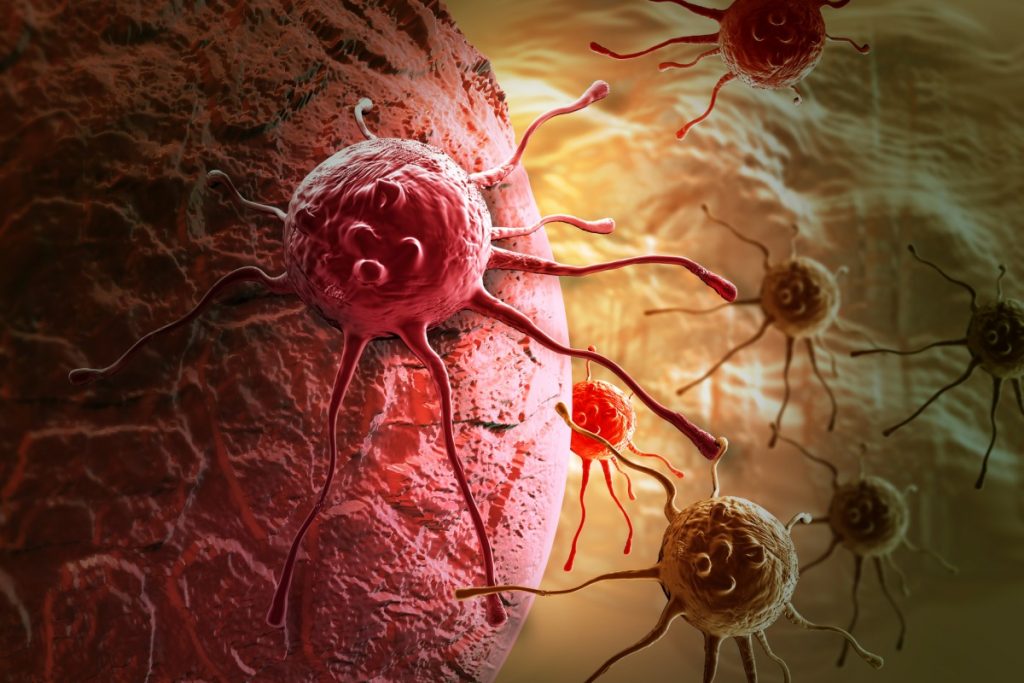A novel cancer vaccine is on its way to phase 1 human trial after promising results are seen in animal trials. It has shown encouraging effectiveness and a sound safety profile. The latest data describes the vaccine as creating a full response in 90 percent of the animals once combined with a second immunotherapy drug.
The development of immune checkpoint inhibitors is conceivably the biggest breakthrough in treating cancer in the past couple of decades. These inhibitors concentrate on preventing the cancer cell mechanisms that they use to evade attacks from immune cells.
PD-1 is a checkpoint protein and an example of the aforementioned cancer cell mechanisms of escaping an attack from the body’s immune system. It combines with PD-L1, another checkpoint protein that can be traced to healthy cells and some cancer cells. It primarily functions to tell killer immune cells to do nothing.
PD-1 inhibitors are a comparably new class of drugs that enable killer immune cells to detect and fight cancer cells more effectively. Numerous first-generation anti-PD-1 monoclonal antibodies have been recommended to treat various cancers in recent years. This novel therapy, called PD1-Vaxx, is created to trigger a broader polyclonal antibody response, with hopefully better results than the first generation of checkpoint inhibitors.
This new study, led by researchers from Ohio State University, reports on preclinical testing of PD1-Vaxx in blending with second immunotherapy treatment. The first author of the study Pravin Kaumaya says this new research offers two important insights into the novel vaccine’s working mechanism.
Kaumaya said the first, PD1-Vaxx stimulates both B- and T-cell functions to advance tumor clearance. Second, the treatment is focused on blocking signaling pathways that are vital for tumor growth and maintenance. By giving this vaccine with an immunotherapy drug, we are actually super-charging, particularly directing the immune system to target and kill cancer cells.
The researchers report the combination therapy was trialed in an animal model of colon cancer and provided complete responses giving out 90 percent success results. Earlier preclinical tests have effectively built a strong safety profile for the vaccine.
The start of November saw the US Food and Drug Administration allowed PD1-Vaxx approval to move into Phase 1 human trials in the U.S. Alike approval was given earlier in the year from Australian authorities to initiate an arm of the Phase 1 trial there. The future clinical trial will focus on patients with non-small cell lung cancer.
Kaumaya showed excitement to begin testing this vaccine in the United States to offer new hope to patients with lung and other cancer forms. This is a much-needed vaccine to fight cancer of all forms, an illness that has taken millions of our loved ones away. The productive results have raised the hopes of those fighting the disease.

